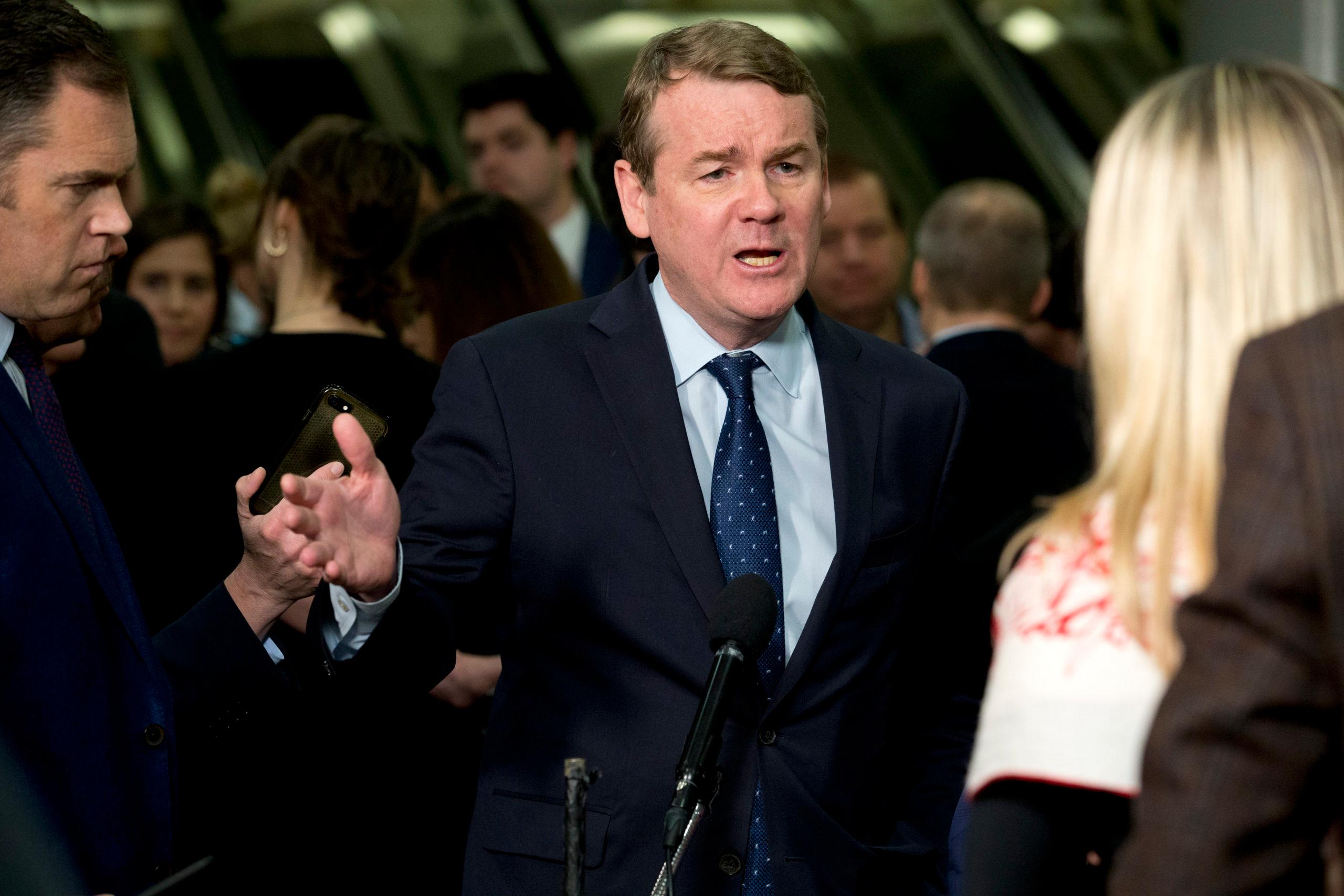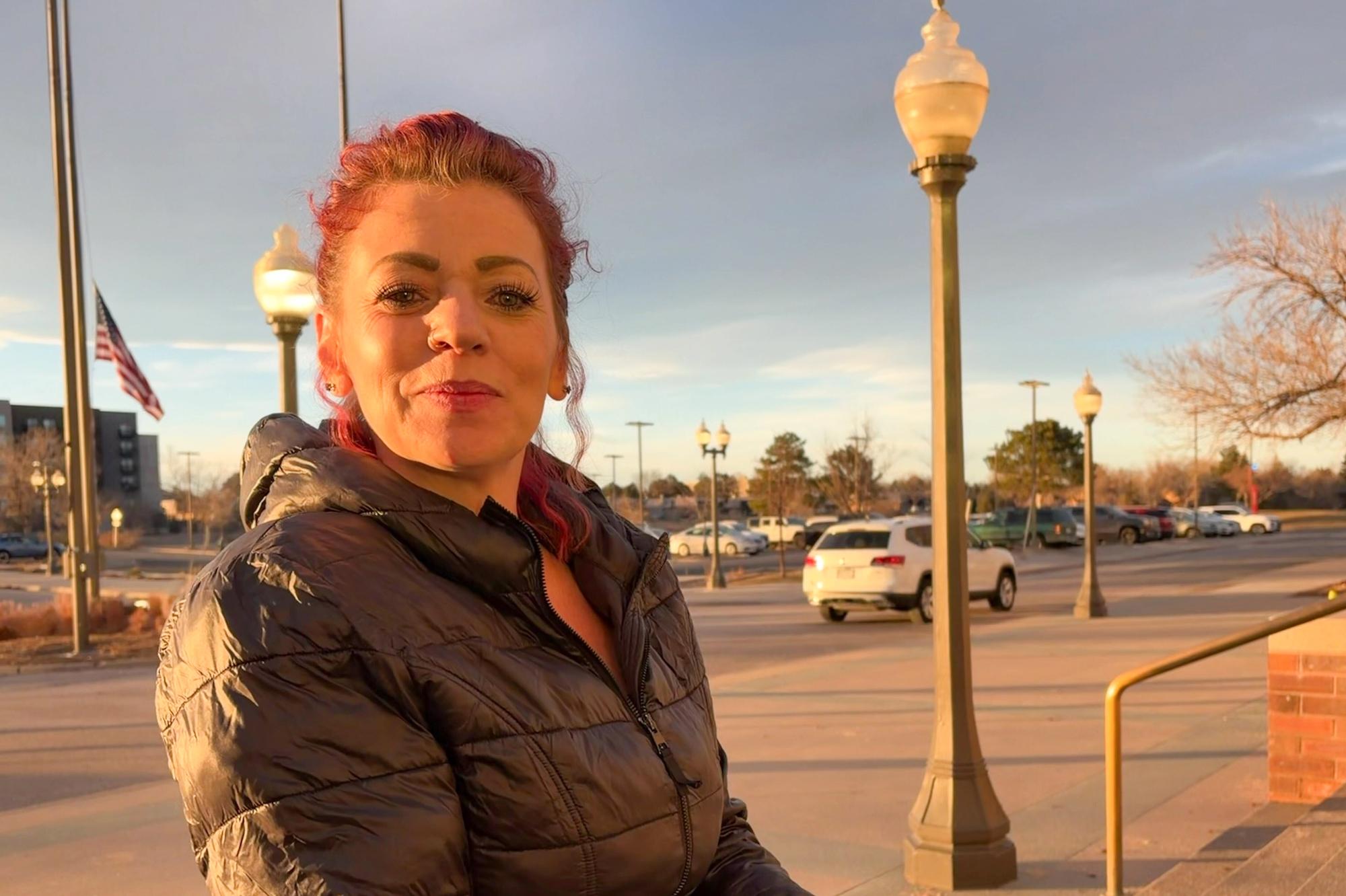
Few people enjoy getting a jury duty summons. When you’re a U.S. senator running for president and the nation’s first primaries are a couple of weeks away, it’s inconvenient, to say the least.
But Democrat Michael Bennet said it’s what he signed up for.
“Each of us has a constitutional duty to fulfill. It's an important one, a solemn one, and I am sure that every single member of the Senate who's running for president will take it seriously. I certainly will,” Bennet told Colorado Matters in December.
Until the Senate impeachment trial ends, Bennet will have to juggle his roles as a juror and candidate.
He and his 99 other colleagues will spend their days at their desks in the Senate chamber without smartphones and keeping silent “on pain of imprisonment,” according to the proclamation that kicked off the proceedings.
Bennet said the Democratic House impeachment managers have presented a compelling case so far. But he wants the complete story — and he believes that means additional documents and witnesses.
“I don’t see what the excuse is for not voting to have documents and witnesses. I’m not saying that people have to vote to impeach the president or to convict the president. I’m saying that we need to vote so that the American people have the opportunity to see what happened here,” Bennet explained.
The allegations of how Trump has conducted himself as president trouble Bennet. His concerns go back well before the Ukraine revelation.
When other Democratic presidential candidates called for impeachment in the late spring after the public release of the Mueller report, Bennet argued Congress needed to conduct its own investigation first, including compelling witnesses to testify and turning to the courts if they didn’t.
It was a position that didn't endear him to democratic primary voters.
At a CNN Town Hall in May, Bennet warned against setting up a Senate acquittal for Trump.
“If we go down the road tomorrow and impeach President Trump, we’re actually giving him a favor,” he told the audience. “That’s what he wants. To be able to say he was railroaded.”
The whistleblower report in September changed the calculus, though. And Bennet, like many moderate Democrats, came out in support of the impeachment inquiry. He said it’s about standing up for democracy and constitutional checks and balances, even if the effort does not end up removing Trump from office.
“Whether the president is acquitted or not, we have the opportunity through this proceeding to establish what our standard for the president is supposed to be,” Bennet said.
The math favors acquittal. A vote to convict requires 67 senators, meaning 20 Republicans would have to join the Senate’s 45 Democrats and two Independents. That's unlikely, to say the least. And Bennet acknowledges that few voters watching see the trial as bipartisan or fair.
“But I don’t think we should be making that assumption,” he countered. “This is a moment where our democracy is really at risk. And the American people need to make sure their elected officials are hearing their demands. That they don’t take the lazy way out. That they don’t cover up what President Trump has done.”
Unlike his Colorado Senate counterpart, Republican Sen. Cory Gardner, who's up for re-election this fall, the political stakes are low for Bennet, at least where Colorado voters are concerned.
“It’s hard to see him facing real trouble on this,” said Seth Masket, director of the Center on American politics at the University of Denver. He notes that Trump is generally unpopular in the state and Bennet's support of additional witnesses and documents is consistent “with both the interests of his party and of the voters in his state.”
Democratic political consultant Steve Welchert agrees. He warned the danger is for the wider Democratic party.
“You risk making Donald Trump a martyr. You risk energizing his base beyond where they’re energized now. And I’m not sure you do much to help your own base. So, I think there are a lot of landmines for Democrats moving forward,” he explained.
Impeachment does hold a practical downside for Bennet.
He’s put a lot of effort into campaigning in New Hampshire, where he’s vowed to hold 50 town halls by the primary on Feb. 11, 2020. Masket said being tied down in D.C. makes Bennet's long-shot chance at a strong showing, even longer.
“If he’s got any chance, he needs to be campaigning in the early states — in New Hampshire and Iowa particularly — where he’s invested a lot of resources,” Masket said.
To make up for being tied down in DC six days a week, Bennet’s campaign will go virtual and hold telephone town halls and Facebook Live events to connect Bennet with Granite State voters. It’s also turned to the traditional route of having surrogates campaign in his place.
Republican strategist Tyler Sandberg may agree that Bennet’s impeachment stance won't hurt him with Coloradans, but he thinks the presidential run will.
“Bennet’s going to pay over the longer term, less over impeachment, more so over the fact he’s not doing his job because he’s on a useless quest to become president where he’s not even polling above 1 percent,” he said.
Colorado voters don’t appear too concerned about Bennet's absences right now. His approval rating is holding steady. But Bennet addressed this issue in New Hampshire last November, saying, “I think the voters of Colorado know how seriously I take my job and my responsibilities in Colorado.”
And as the impeachment trial continues, he'll be able to show how seriously he takes his responsibilities in the Senate.









